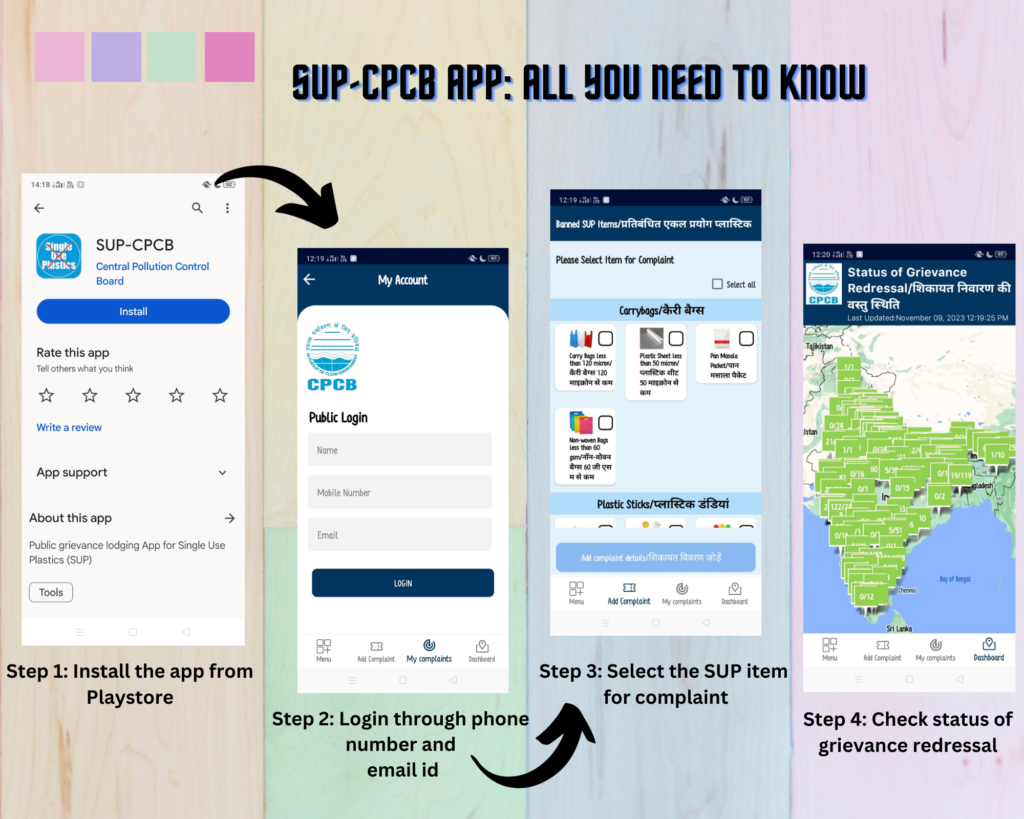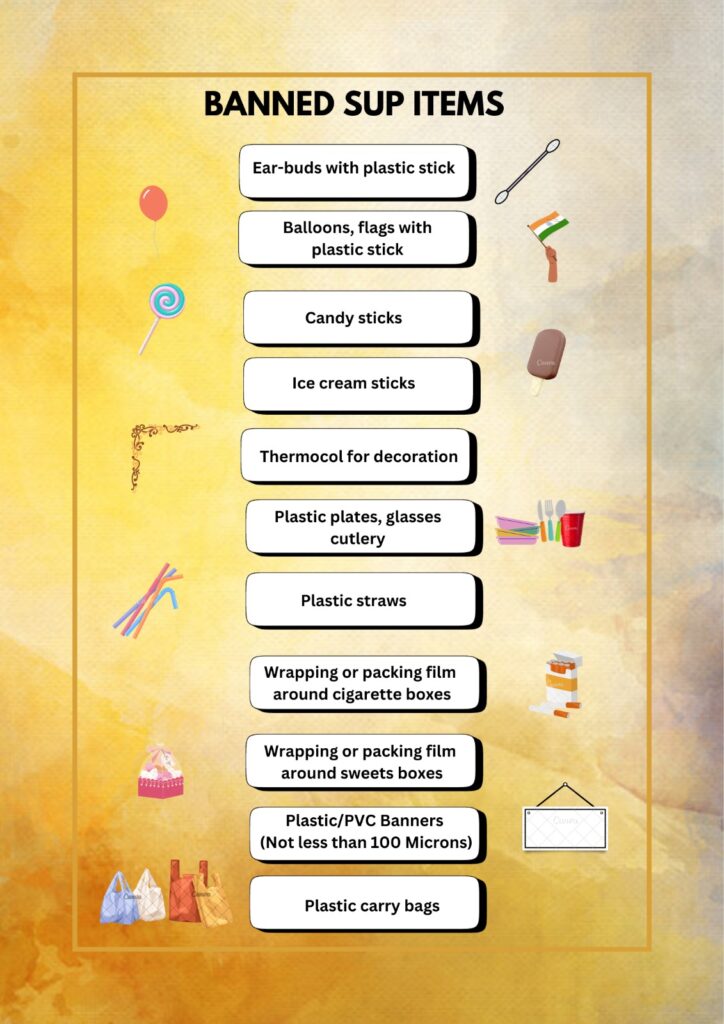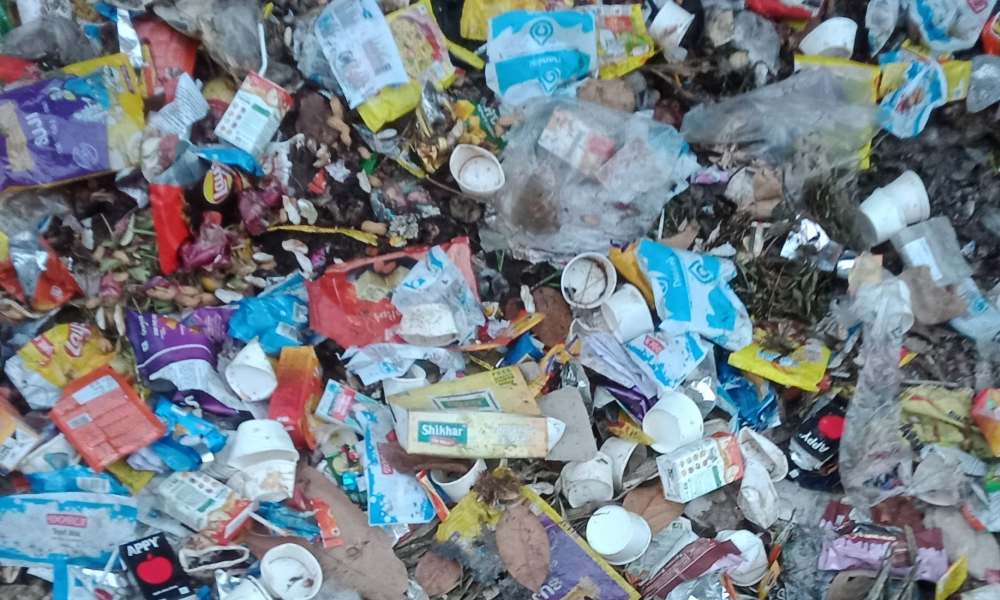Experts say that 404 complaints in seven months against banned Single Use Plastic items is a small number.
A report by the Centre for Science and Environment (CSE) indicates that in Bangalore only 404 complaints have been registered from Sept. 2022 to Mar. 2023 on the Single Use Plastic (SUP) grievance redressal mobile application. The low number of complaints indicates lack of awareness about the app and the ban on SUP, which according to the report, is worrying.
The SUP redressal app, which was launched in April 2022 by the Central Pollution Control Board (CPCB) allows citizens to report the manufacture, production, stocking, sale or usage of banned SUP items in their locality. The complaints are then transferred to be redressed by the officials concerned.

In a poll conducted among 30 students studying in Rajarajeshwari College of Engineering, 16 were aware of the ban and only three knew about the app. But none of the three had registered complaints on it. Shruthi, one of the students who was aware of the app said, “I know SUP items are banned, and I see them being used almost everywhere. However, it never occurred to me to lodge a complaint on the app.” Another student said, “I had read about the app back when it was launched, but then forgot all about it.”
In another poll conducted among 15 information technology (IT) sector professionals working in Bangalore, only two knew about the app.
The CSE report says that the app, soliciting citizen action, can be used as an effective mechanism to curb the use of single-use plastics if there is enough awareness and usage.
The Karnataka State Pollution Control Board (KSPCB) banned the use of SUP items in the state with effect from July 1, 2022. The KSPCB defines single-use plastic commodity as “a plastic item intended to be used once for the same purpose before being disposed of or recycled.” According to a press release by the Ministry of Environment, Forest and Climate Change, plastic items lesser than 75 microns thickness are SUPs. Some of the SUP items banned by the KSPCB are plastic plates, cups and glasses, thermocol for decoration, plastic cutlery and straw and wrapping or packing films.

Anusha Gowda, Assistant Engineer, Bruhat Bengaluru Mahanagara Palike (BBMP) Solid Waste Management (SWM) division said that the BBMP is working towards reducing and also eliminating the use of SUP items in the city by collecting fines and seizing SUP products. She added that the KSPCB rules mandate that the producers and distributors of the SUP items should be fined and the manufacturing units of the SUP producers should be shut down. Retailers and street vendors selling commodities in carry bags or wrapped in plastic sheets should also be fined. While retailers can be fined up to Rs. 10,000 street vendors can be fined up to Rs. 1,000.
Praveen Lingaiah, Chief Executive Engineer at the division said, “We have collected over Rs. 13 crore in fines and seized almost 60,000 kg of banned plastic items over the last year. We are trying hard to ensure that the ban is implemented effectively.”
According to the CSE report, out of the 404 complaints registered on the app in Bangalore, only 242 have been redressed. Lingaiah said that the BBMP will look into the matter and redress all the complaints soon.
Dr. Nirupama A.Y, lecturer at the Indian Institute of Public Health, Hyderabad said that 404 complaints in seven months is a small number. “It shows that either the public is unaware of the application, or are reluctant to register complaints on it,” she said. “In this digital era, such apps or toll free numbers are powerful mediums to address civic, health or environmental issues as they involve citizen participation. There should be enough awareness about them before their launch,” she added. However, to ensure full implementation of the ban, the demand for SUPs should be reduced and eventually stopped in favour of sustainable, biodegradable and leak proof products, she said.
Ashika S.L, sustainability consultant at Deepwoods Green Initiative Ltd. said, “SUPs have numerous harmful effects on our environment. The micro plastics in them can leach chemicals such as Bisphenol A (BPA) into our water bodies causing marine pollution.” She added that SUPs often end up in landfills, polluting the soil and affecting the flora and fauna. “Social media could be used as an effective tool to spread more awareness and information about the app. The public should also be educated better on the hidden dangers of using SUPs.”




